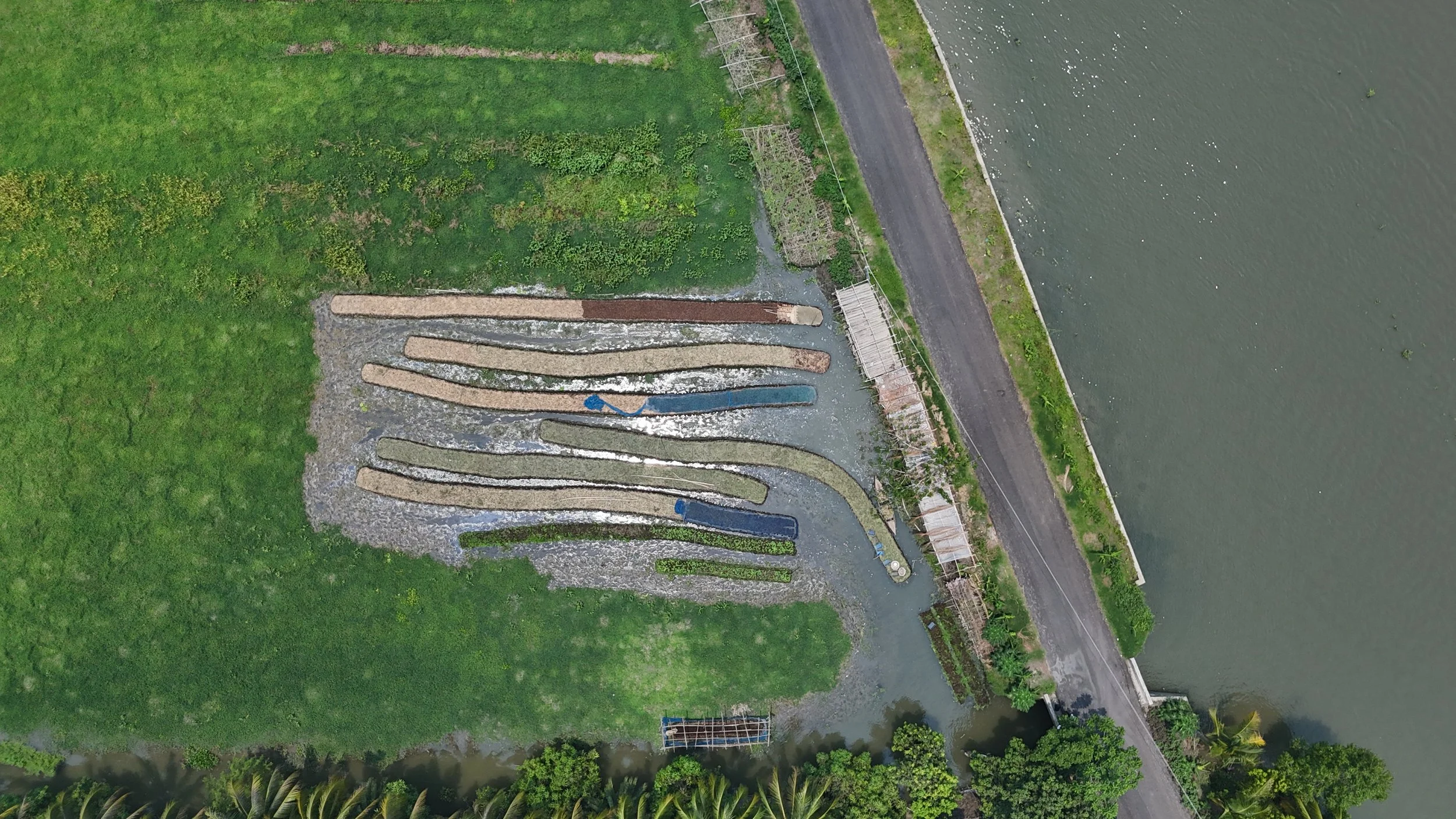Learning from Barisal: Traditional Floating Farming Inspires Urban Agro-Ecology at Korail Lake
As part of our agro-ecological initiative to restore wetlands through community-led stewardship, our team traveled to Barisal—a region long known for its innovative water-based farming techniques. The purpose of this field visit was to observe and learn from the traditional method of creating “ম্যাদা” (floating beds made from water hyacinth and organic matter), a time-tested agricultural practice used by Barisal’s farmers to grow crops directly on water surfaces.
During the visit, we met with local farmers, including Abul Hossain, a seasoned practitioner who has cultivated crops on floating beds for years. He shared insights into how these ম্যাদা are constructed, maintained, and used to produce vegetables, spices, and greens—all without needing soil or solid land. These floating beds are not only environmentally friendly but also resilient to flooding and changing water levels, making them ideal for climate-impacted areas.
Our documentation from Barisal—capturing both video footage and farmer interviews—will guide the development of similar agro-ecological models in Korail, where urban farmers are already experimenting with cultivation along the Gulshan-Banani Lake.
See them practicing here: www.facebook.com/share/v/1DYMXKBWUq/


